Rio 2016: Can Games bounce back from Brazil economic woes?
- Published
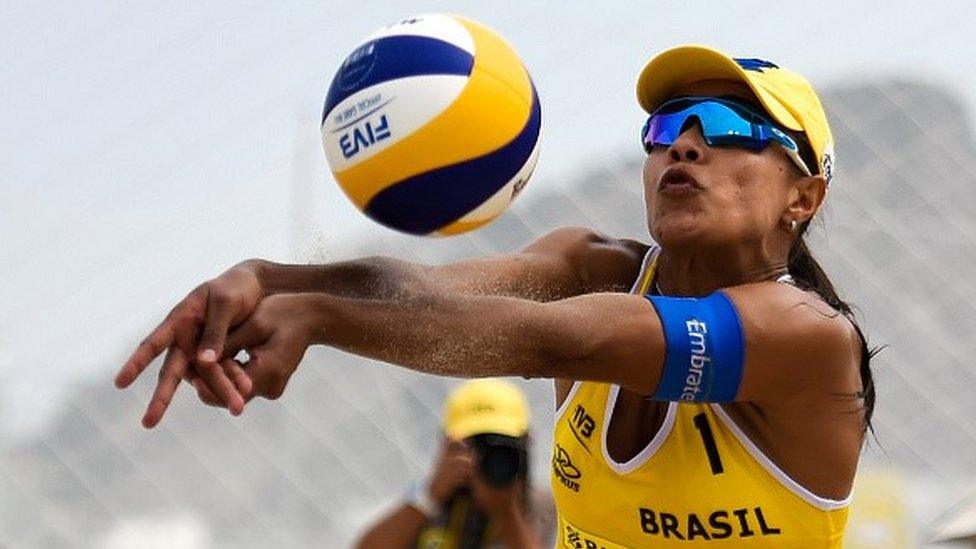
Organisers say the Rio 2016 beach volleyball arena will be the biggest in the world
Rio 2016 chiefs are confident the Olympic and Paralympic Games will be successful despite the potentially negative effects of the lacklustre Brazilian economy.
Latest figures show that Brazil fared worse than almost any other major economy in 2015, with its GDP contracting by 3.8%, according to the national statistics agency IBGE.
It was Brazil's worst set of figures since 1990, as economic growth in the world's seventh-largest economy has fallen sharply in recent months.
It is all very different from when Rio was awarded the world's biggest sporting event in 2009, a time when the nation's economy was coming out of recession and was seen as possessing huge growth potential.
'Spectacular Games'
Then, the Games were seen as a showcase for the country, not just to promote it on the world stage, but also as a fillip for the economy, with then-President Luiz Inacio Lula da Silva saying the "financial crisis hit us last and we got out of it first".
"In 2009 it was a different scenario," admits Carlos Nuzman, the president of the Rio 2016 organising committee, who is adamant the country will deliver a "spectacular Games".
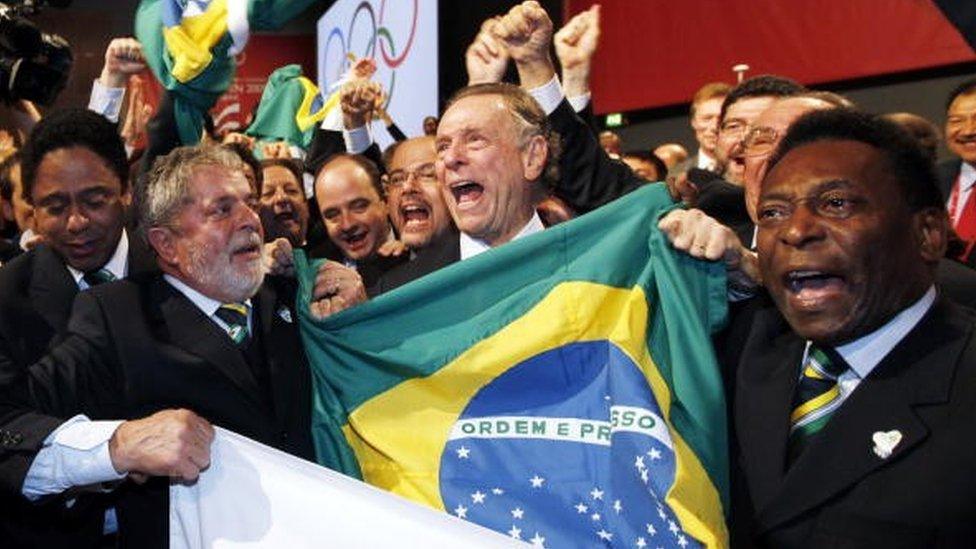
Economic hopes were high when Rio was awarded the Games back in 2009
Mr Nuzman, on a recent visit to London, said that from an organisational point of view the "economic issues that we have have not affected the Games".
"We have the support of the three levels of government - the Federal, state and city authorities - and the organising committee are all working together," he added.
'Proud'
The 73-year-old says organisers are operating a balanced budget before the Games, which run from August 5-21, and that the only cuts have been to the "excess".
Organisers are scaling back in a number of areas to balance their operating budget of £1.35bn, with cost-cutting measures of some $500m (£353m).
These include ditching plans for a 4,000-capacity floating stand at the Olympic rowing site on the Rodrigo de Freitas lagoon.
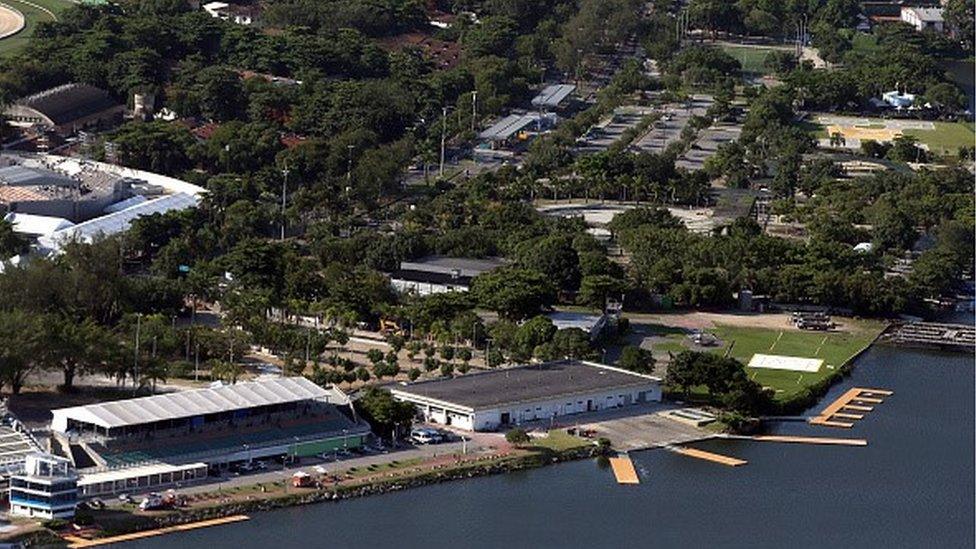
Plans for a floating island near to the rowing venue have been abandoned
"We are not changing anything about the field of play, we are doing everything for the athletes, nothing has been cut," adds Mr Nuzman.
"We have not used any public resources - I think we are the single organising committee who have done this. That is a victory - especially in the moment we are living in our country and we are proud of this."
Ticket campaigns
That flatlining economy may also be the reason for the slow ticket sales to date, as Brazilians hold onto hard-earned cash.
With between 12% and 15% of Paralympic tickets and 47% of Olympic tickets sold, the last thing organisers need is for their showpiece event to be played out in front of half-empty stands.
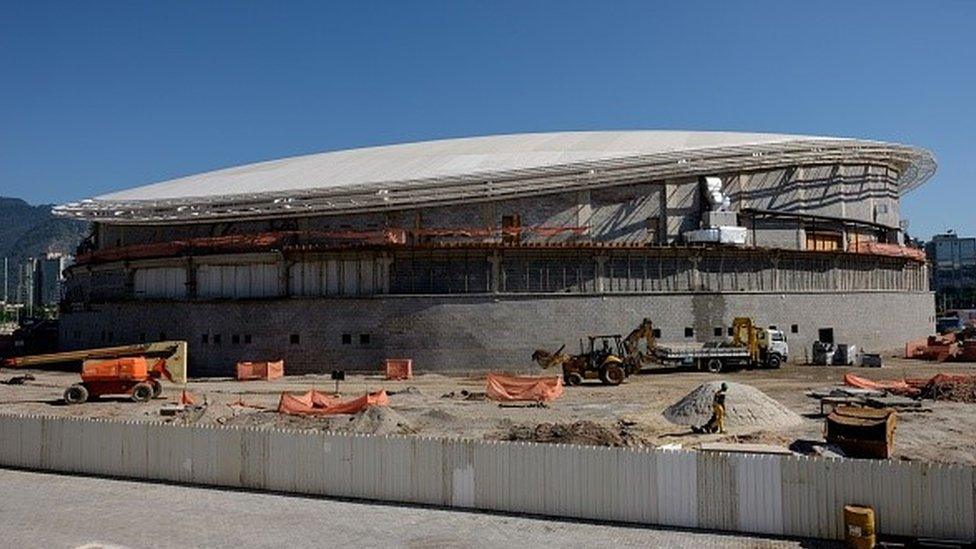
The velodrome has been awaiting a delivery of wood to complete the cycling track
Of the 6.6 million Olympic Games tickets available, just 3.1 million have been snapped up, but Mr Nuzman remains confident.
"Many, many sports are already sold out," he says. "If we had more tickets, we'd have sold more. For the other sports, we have a campaign."
He adds: "Brazilians love to buy tickets at the last moment. This happened with the World Cup and other events. I am confident we will have full stands, and I hope sponsors can give the tickets they have to their guests."
Torch relay
On the business front, Mr Nuzman says organisers have signed more than 700 commercial contracts with 1,272 suppliers.
Coca Cola, Nissan and Bradesco have signed up to be sponsors of the Olympic torch relay across Brazil, beginning on 3 May.
With regards to sponsorship of the event itself, Rio 2016 communications executive Mario Andrada said the sponsorship sales programme has reached 95% of its target.
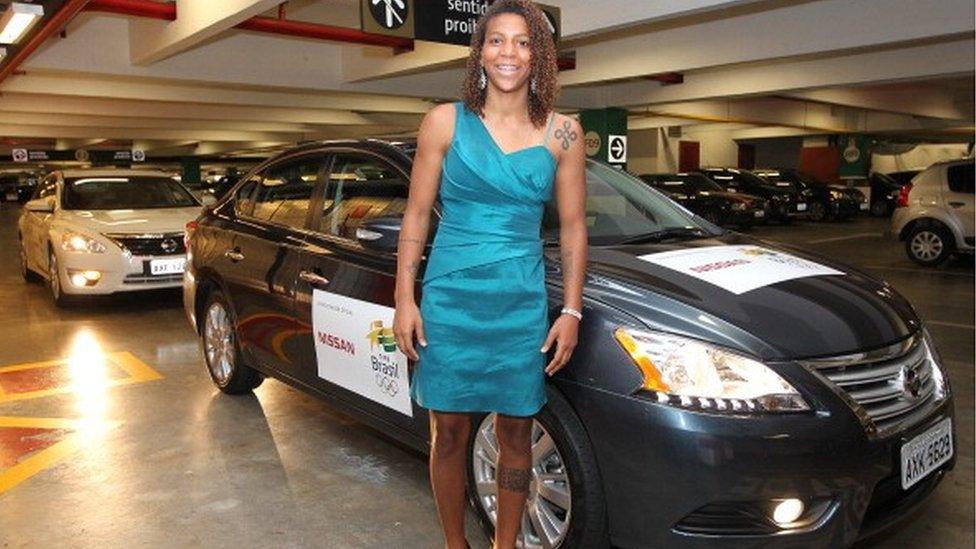
Nissan is a sponsor of the torch relay and an official games sponsor
He said he was confident of the sponsorship programme being completed in the next few months.
As well as the IOC's sponsorship strata of Worldwide Olympic Partners, such as Coca-Cola, McDonald's, Samsung and Visa, there are currently six official sponsors and 11 partners of the Games.
They include Brazilian businesses such as Bradesco, Embratel, Correios, TAM, Batavo, Globo and Skol, and international brands such as Nissan, Cisco, and EY.
Youth attraction
As far as infrastructure development is concerned, Mr Nuzman says the velodrome is the only Olympic venue that has experienced delays, caused by a hold-up in the delivery of wood for the track, but that the arena is 85% completed.
Meanwhile, he says that the canoe slalom water venue in the Deodoro zone of the city - an area with a large number of under-18-year-olds - is already being used by 12,000 youngsters each weekend.
He adds that only one of more than 40 sporting test events - cycling - has been delayed to date, by two weeks, with more than 50% of trials completed.
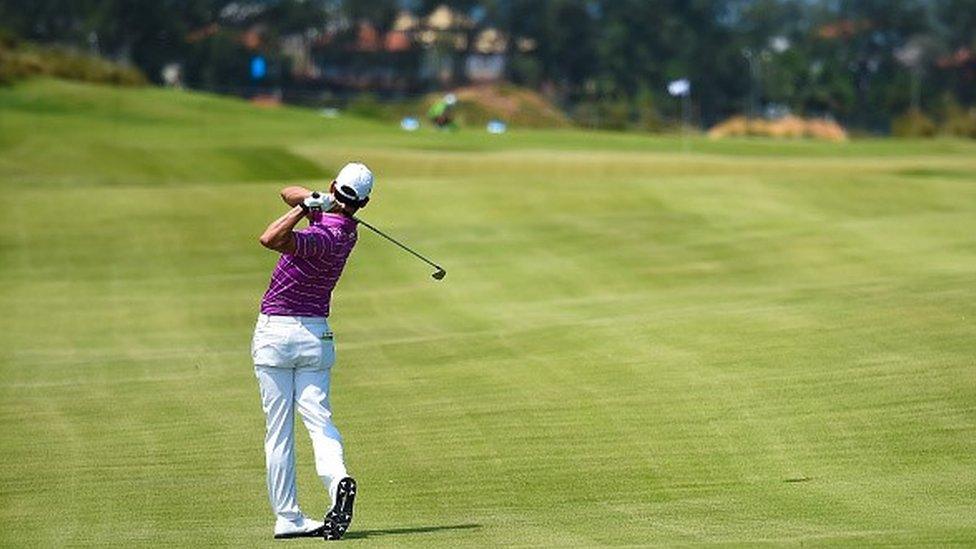
The Rio 2016 golf test event was held earlier this month
But it is not just on the economic, ticketing, and sponsorship fronts, that Rio is under the spotlight.
The Zika health virus scare has been widely covered in the world's media for the past few months, which may means some officials, spectators and competitors think twice about attending.
Mr Nuzman points out that Dr Margaret Chan, the head of the World Health Organisation has expressed confidence that Brazil can host the Rio Olympics safely despite the Zika threat.
Meanwhile, he says the Games organisers will install air conditioning in all apartments in the athletes' village to combat the mosquitoes that spread the virus.
Water monitoring
Another concern has been that the water at Marina de Gloria - where seven of the 10 sailing events will launch - will be too dirty.
Mr Nuzman, who played for the Brazil volleyball team at the 1964 Games, said that the water would be inspected weekly for stagnant water, moving to daily during the Games period.
"The field of play of the Olympic Games is the other side of the [Guanabara] bay," he adds. "The international federation gave the approval and we will keep a very strong team to clean, which will start and continue during the Games."
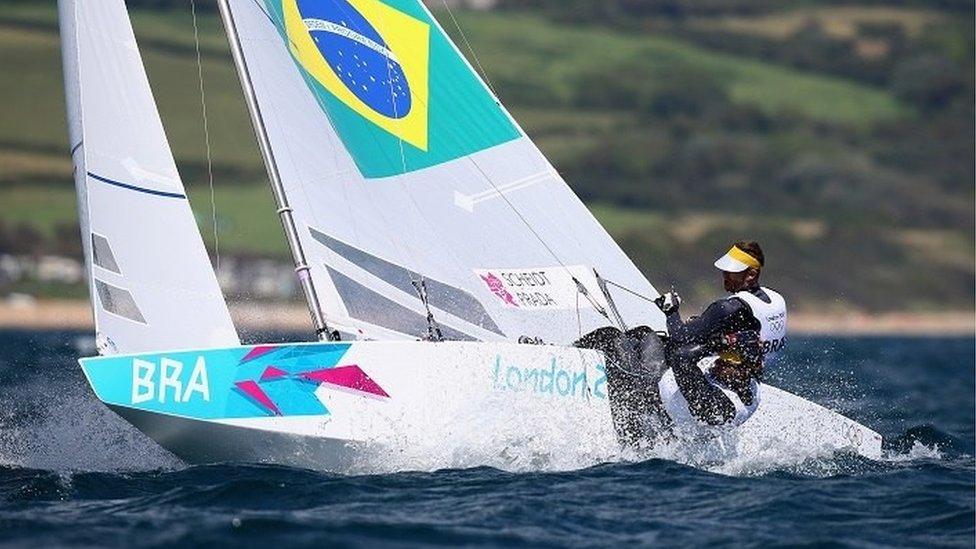
Water quality in the run-up to the Games has been a concern
However, despite the organisers' ability to seemingly juggle many challenges simultaneously, the underperforming Brazilian economy continues to overshadow preparations.
With the economy predicted to contract again this year by about 3%, Rio 2016 will hope it can provide a much-needed feel-good factor.